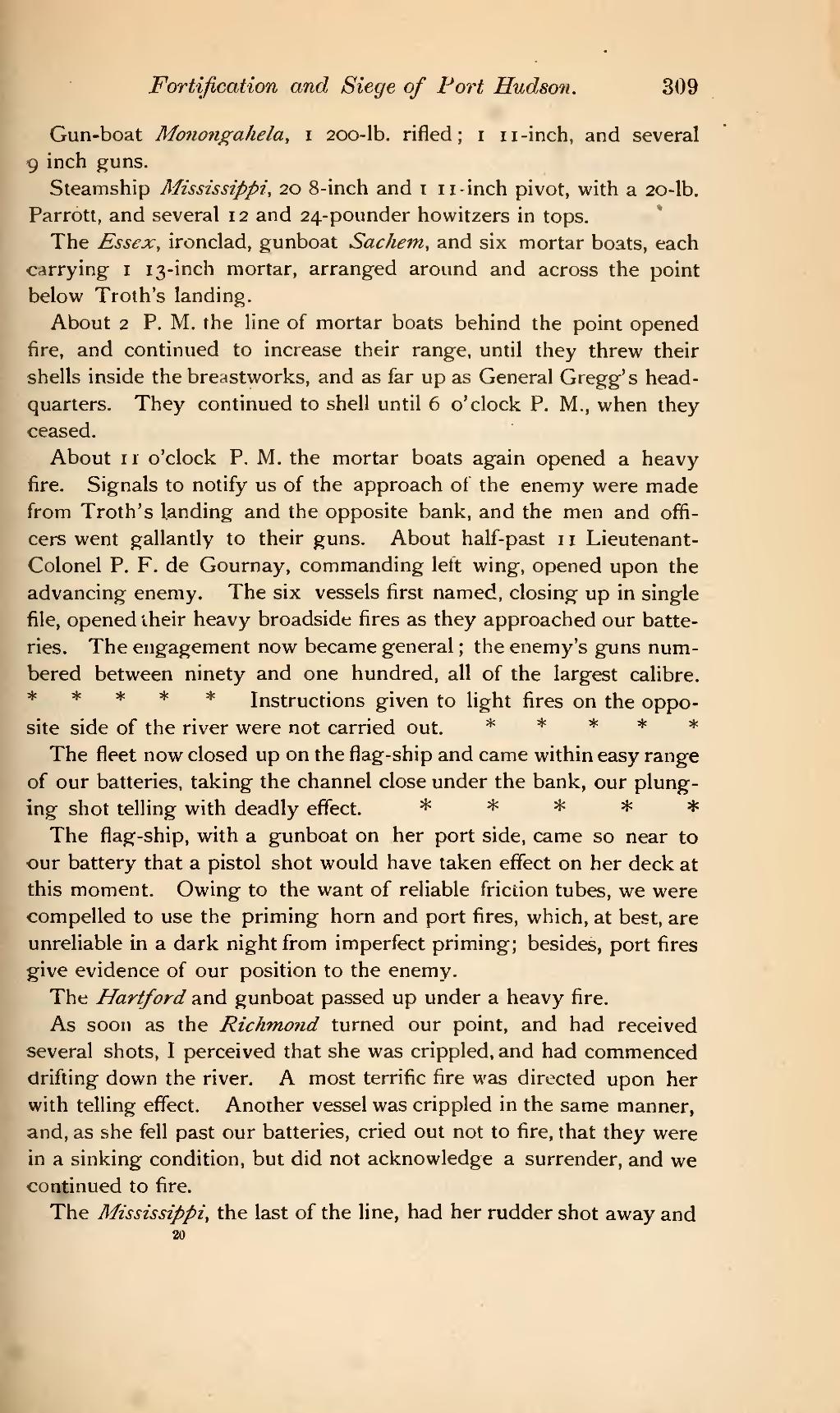Fortification and Siege of Port Hudson. 309
Gun-boat Monongahela, i 200-lb. rifled; i ii-inch, and several 9 inch guns.
Steamship Mississippi, 20 8-inch and i ir-inch pivot, with a 20-lb. Parrott, and several 12 and 24-pounder howitzers in tops.
The Essex, ironclad, gunboat Sachem, and six mortar boats, each carrying i 13-inch mortar, arranged around and across the point below Troth's landing.
About 2 P. M. the line of mortar boats behind the point opened fire, and continued to increase their range, until they threw their shells inside the breastworks, and as far up as General Gregg's head- quarters. They continued to shell until 6 o'clock P. M., when they ceased.
About II o'clock P. M. the mortar boats again opened a heavy fire. Signals to notify us of the approach of the enemy were made from Troth's landing and the opposite bank, and the men and offi- cers went gallantly to their guns. About half-past 11 Lieutenant- Colonel P. F. de Gournay, commanding left wing, opened upon the advancing enemy. The six vessels first named, closing up in single file, opened their heavy broadside fires as they approached our batte- ries. The engagement now became general ; the enemy's guns num- bered between ninety and one hundred, all of the largest calibre.
- * * * * Instructions given to light fires on the oppo-
site side of the river were not carried out. **=(=**
The fleet now closed up on the flag-ship and came within easy range of our batteries, taking the channel close under the bank, our plung- ing shot telling with deadly effect. *****
The flag-ship, with a gunboat on her port side, came so near to our battery that a pistol shot would have taken effect on her deck at this moment. Owing to the want of reliable friction tubes, we were compelled to use the priming horn and port fires, which, at best, are unreliable in a dark night from imperfect priming; besides, port fires give evidence of our position to the enemy.
The Hartford and gunboat passed up under a heavy fire.
As soon as the RicJnnond turned our point, and had received several shots, I perceived that she was crippled, and had commenced drifting down the river. A most terrific fire was directed upon her with telling effect. Another vessel was crippled in the same manner, and, as she fell past our batteries, cried out not to fire, that they were in a sinking condition, but did not acknowledge a surrender, and we continued to fire.
The Mississippi, the last of the line, had her rudder shot away and
